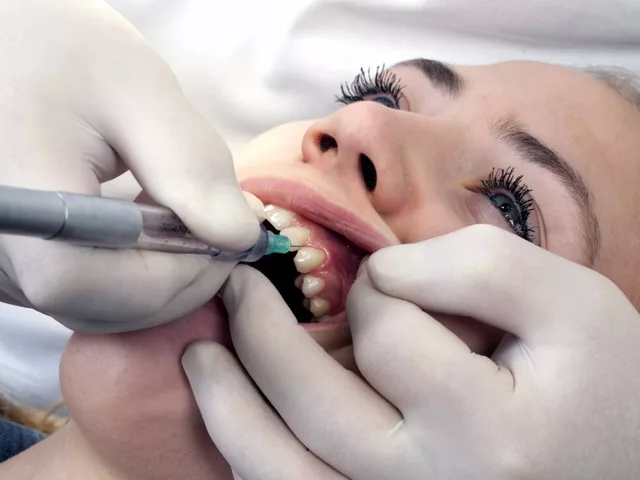Stable Angina: What It Feels Like and What to Do
Stable angina is chest pain that happens when your heart needs more oxygen than the narrowed coronary arteries can deliver. It usually comes on with activity or stress and eases with rest or nitroglycerin. If you get predictable chest tightness when walking uphill or after a big meal, that pattern points to stable angina rather than a sudden heart attack.
Quick at-home steps when symptoms start
If you feel chest discomfort that you suspect is angina, stop what you’re doing and sit down. Take your prescribed short-acting nitroglycerin under the tongue — one dose, then wait five minutes. If pain continues, you can take a second dose, and a third after another five minutes (follow your doctor’s instructions). If pain lasts more than 10–15 minutes or gets worse, call emergency services right away.
A key safety note: never take nitrates (like nitroglycerin or Isordil) if you’ve used erectile dysfunction drugs such as sildenafil (Viagra) within the past 24–48 hours — that combo can dangerously drop your blood pressure.
Common treatments, tests, and lifestyle moves
Treatment aims to reduce symptoms and lower heart attack risk. Typical meds include:
- Short-acting nitrates (for quick relief).
- Beta-blockers (slow the heart and cut oxygen demand).
- Calcium channel blockers (relax arteries).
- Antiplatelet drugs like aspirin (reduce clot risk).
- Statins (lower cholesterol and stabilize plaques).
- ACE inhibitors or ARBs if you have high blood pressure or heart damage.
Doctors will check your heart with an ECG, blood tests, and often a stress test. If results suggest significant blockages, coronary angiography can show where arteries are narrowed and whether angioplasty or stents are needed.
Lifestyle changes matter: stop smoking, aim for regular moderate exercise (after your doctor says it’s safe), eat more vegetables and whole grains, limit salt and processed foods, and control diabetes and blood pressure. Small steps add up — losing 5–10% of body weight can cut symptoms for many people.
Follow-up with a cardiologist is crucial. If your angina pattern changes — it comes on at rest, is more frequent, or lasts longer — treat that as a red flag and get urgent care. Stable angina can be managed well, but it needs the right medicines, checks, and daily habits to keep you out of the ER and feeling better.
1
Stable Angina: Causes, Symptoms, and Treatment Options
Alright, folks, let's talk about this super fun topic: Stable Angina. It's that chest pain that feels like an elephant is having a disco party in there due to your heart not getting enough blood. Causes? Well, it's usually from coronary artery disease where your heart's arteries are tighter than my jeans after the holidays. Symptoms, besides the aforementioned elephant rave, might include discomfort in your arms, shoulders, or jaw. Now, on to the bright side, treatment options range from lifestyle changes (like saying bye to your beloved donuts), medications to help your arteries chill a bit, and procedures to improve blood flow. So, listen to your heart, literally!
Latest Posts
Popular Posts
-
 Enteral Feeding Tube Medication Safety: Compatibility and Flushing Protocols Explained
Enteral Feeding Tube Medication Safety: Compatibility and Flushing Protocols Explained
-
 Meniere’s Diet: How Sodium Restriction and Fluid Balance Reduce Vertigo and Hearing Loss
Meniere’s Diet: How Sodium Restriction and Fluid Balance Reduce Vertigo and Hearing Loss
-
 OTC Heartburn Medications: Antacids, H2 Blockers & PPIs Explained
OTC Heartburn Medications: Antacids, H2 Blockers & PPIs Explained
-
 Magnesium Supplements and Osteoporosis Medications: What You Need to Know About Timing
Magnesium Supplements and Osteoporosis Medications: What You Need to Know About Timing
-
 Extended Use Dates: How the FDA Extends Drug Expiration Dates During Shortages
Extended Use Dates: How the FDA Extends Drug Expiration Dates During Shortages


